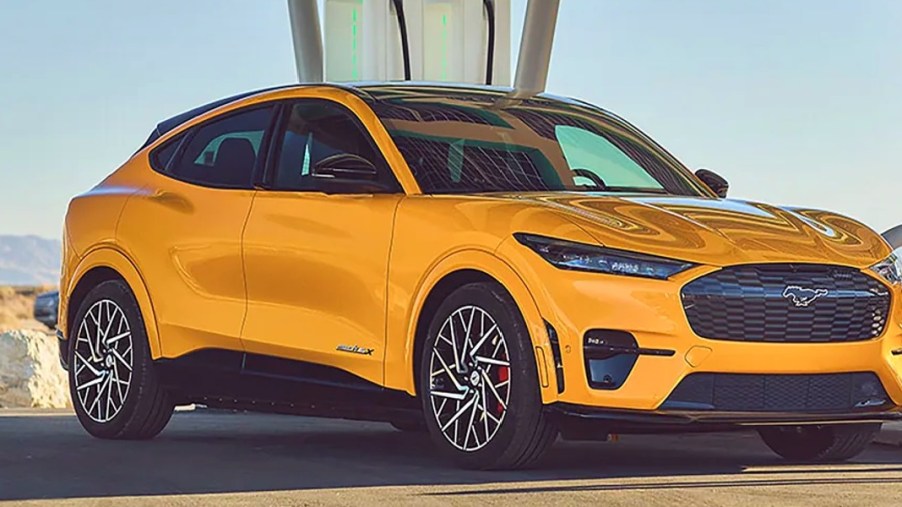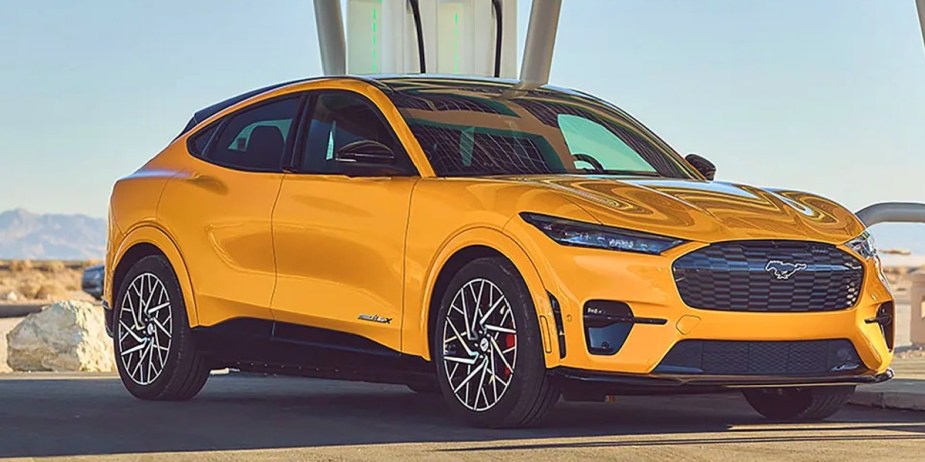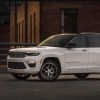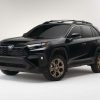
Google’s A.I. Bard Says 3 Things Need to Happen to Popularize Electric SUVs
Artificial intelligence isn’t all-knowing, but it can source and organize information at amazing speeds. Google is rolling out its A.I. Bard and allowing users to try the beta version. When asked about what needs to happen to popularize electric SUVs, it listed four different factors that will contribute to the success of the vehicles. Here are three things that need to take place before electric SUVs can become ubiquitous, based on information gathered by Google’s A.I. Bard.
Google’s Bard A.I. chatbot says affordability is a huge factor in EV ownership
Even a developing A.I. chatbot knows that electric SUVs are too expensive for the average consumer. Some models may be exceptionally affordable, but overall, EVs are significantly more expensive than internal combustion engine vehicles. This is in part due to the complexity of electric vehicle powertrain systems.
Electric vehicles are becoming much more affordable as automakers gain more experience with EV production. General Motors currently produces the two most affordable mass-produced electric vehicles on the Market, the Chevy Bolt and Chevy Bolt EUV. The 2023 Chevrolet Bolt starts at $26,500. The Bolt EUV starts at $27,800. According to CNN Business, both Chevrolet models are eligible for the $7,500 federal electric vehicle tax credit.
Hyundai’s small electric SUV, the Hyundai Ioniq 5, is reasonably affordable (it starts at $41,450). The Ioniq 5 won the World Car of the Year Award in 2022. If automakers want consumers to purchase electric vehicles, prices may have to drop. EV tax incentives can also be revised in the future to benefit more vehicles. With that being said, several popular models are currently eligible for the incentive, so we’re headed in the right direction in terms of affordability.
Charging infrastructure needs to improve
Electric vehicle charging infrastructure has a long way to go before it can be practical for consumers. America will need thousands of charging stations across the country to popularize electric SUVs.
Tesla has a large network of fast charging stations globally, but overall, EV charging infrastructure could still benefit from investments of millions of dollars. Before electric SUVs can become as popular as internal combustion engine SUVs, companies will have to bet big on electric vehicle charging. Volkswagen’s Electrify America is making huge strides. There are also plenty of other companies making moves in the charging space, like ChargePoint and EVgo.
Google Bard says a wide variety of options benefits consumers

Competition may not be great for companies, but it sure is for consumers. As more automakers roll out electric SUVs, more options become available for average consumers. Models like the upcoming Kia EV9 and Volkswagen ID.Buzz are pushing boundaries and showing that electric vehicles can come in all shapes and sizes.
The ideal market to get an electric SUV is a market where the largest automakers provide options. Brands like Honda have still yet to catch up. Toyota hasn’t had the success that it hoped for with its new battery-electric SUV, the Toyota bZ4X.
While there are many electric vehicle options on the market today, the electric SUV segment still has some growing to do before consumers feel like they have an adequate number of options to choose from. Google Bard has its limitations, but it accurately pinpointed three different ways to further popularize electric SUVs.



